Gravel Path Renovation
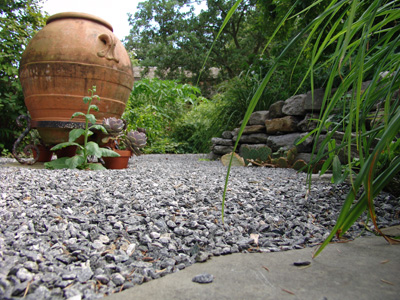
Renovation of the Cunningham House front entrance circle and walk is underway. Taking a cue from the construction, we took the opportunity to renovate the gravel path in the Scott Entrance Garden. The gravel path skirts under a fine specimen of Magnolia virginiana var. australis ‘Henry Hicks’, expands to highlight a clay urn, then exits along the sidewalk beside a grouping of Pinus strobus ‘Nana’.
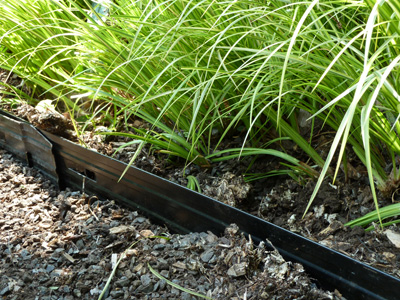
Steel landscape edging. photo credit: J. Coceano
Over time soil from the planting beds migrated into the gravel. To remedy this, a steel landscape edging was installed. Readily available from home improvement stores, the edging is secured with metal stakes.
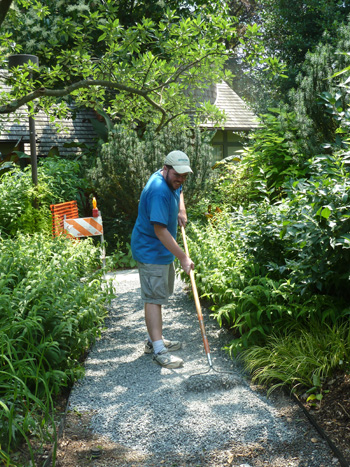
Matt Krapf, summer intern, spreads gravel. photo credit: J. Coceano
Next, gravel was spread. 3 tons of ½ inch granite gravel was obtained. About 2.5 tons was spread. The remainder is stored for touch ups and top dressing cacti and succulent containers. Andrew Bunting, curator, suggests an ideal gravel depth of 3-4 inches. Another consideration would be to lay down a weed mat under the gravel to suppress weeds and prevent the gravel from settling into the earth.
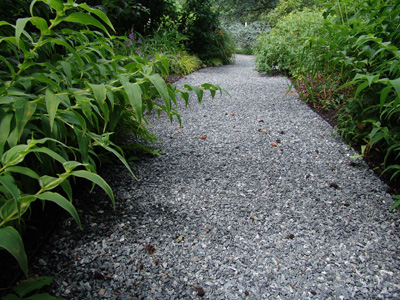
Completed renovation on the gravel path in Scott Entrance Garden. photo credit: R. Robert
Paths can vary in size, shape, and color. They can run in a simple, straight line, or can be elaborate and have a decorative, serpentine curvature that weaves and flows. Such paths are easy to install and can be accomplished during the course of a day or over a weekend.
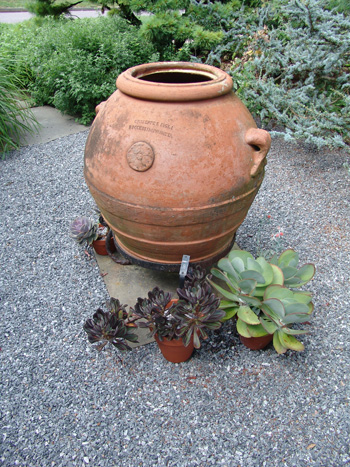
Gravel can be used to create low traffic pathways and to top dress succulent containers. photo credit: R. Robert
Gravel is an economical choice averaging 25 to 50 cents per square foot and coming in a variety of colors. This is cheaper than flagstone, brick, or concrete. Gravel can get lodged in the bottom of shoes and be difficult to push or pull wheeled objects; therefore, gravel paths are ideal for low to moderate foot traffic.





No Comments